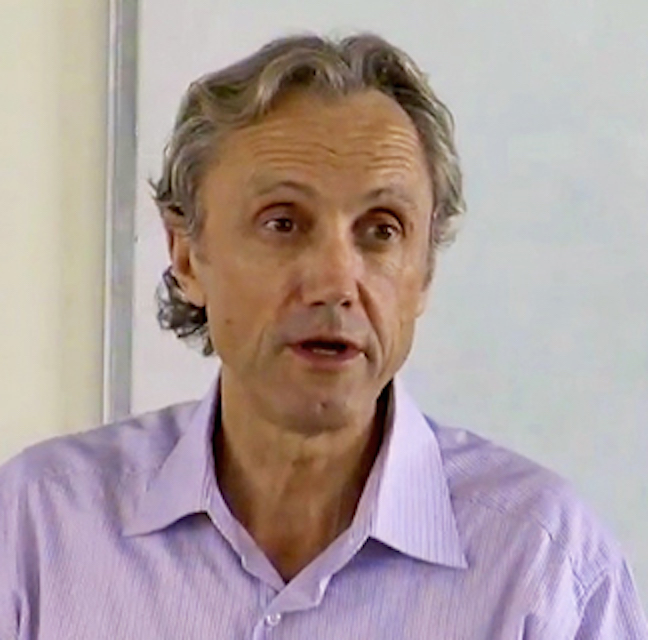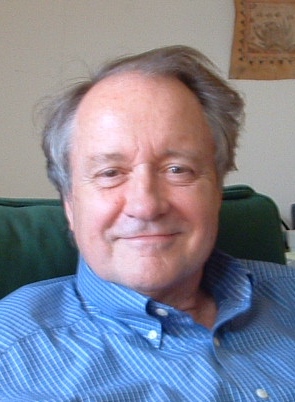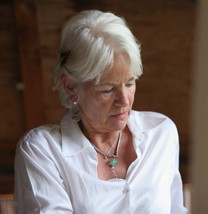When suffering strikes, it is helpful to find a framework through which we may understand it. The approach of the Diagnostic and Statistical Manual (DSM) is of limited help, because there are many normal forms of suffering given the circumstances of a person’s life. Even in the presence of emotional disorder, people with the same diagnosis suffer in unique ways and require a personalized approach. Traditional religions offer explanations and reasons for suffering, and we will consider some, but depth psychology has unique approaches. This lecture will describe some ways to search for meaning in suffering, and consider it as an experience of liminality and initiation into a new level of consciousness. We will discuss an approach to suffering based on radical acceptance.
Season: Fall 2016
The Soul in Anguish: Depth Psychological Approaches to Suffering
Painful states of mind such as hatred, envy, alienation, scapegoating, cruelty, and loneliness, also produce suffering. We will describe some of the developmental sources of these complexes, their effects on the personality, and some of the ways in which they may be approached in psychotherapy. We will contrast these states of mind with the psychology and psychodynamics of altruism, empathy, compassion, concern, care, consolation, and pity, exploring the similarities and differences between these states. Finally we will discuss ways to help the helper, who may suffer from burnout and compassion fatigue.
The Gods at Play: Archetypal Powers and Patterns in the Arts
As ancient poets and modern depth psychologists have long recognized, the arts represent an especially vivid expression of the archetypes that inform and inspire the human psyche. The aim of this weekend’s program is to provide a rewarding interplay of instruction and entertainment, each enhancing and illuminating the other.
The capacity to discern archetypes – the cultivation of what James Hillman called an “archetypal eye” – requires not only our thinking but our emotions, imagination, aesthetic and moral intuition, our bodies: our whole being. Because the arts engage all these dimensions of the human sensibility, these presentations will use representative works of art as windows into the archetypal character of different eras and individuals, and into the archetypes themselves.
We’ll focus especially on major examples from music and comedy. Music provides perhaps the most profound and direct expression of the archetypal psyche, reaching back to the earliest origins of human culture, capable of touching the depths of our souls. Comedy is ancient as well: the Trickster, whether in the individual psyche, in a tribe or a royal court, or commenting on a presidential campaign, is crucial to the self-regulating and regenerative play of the whole. It is the agent of the unconscious, rebelling against the conventional rulers, speaking the truth from below.
Our approach will be facilitated by the combined lenses of depth psychology and archetypal astrology, which permit an extraordinarily precise focus on the specific archetypal complexes most prominently at work in a given individual, work of art, or cultural era.
The Gods at Play: Archetypal Powers and Patterns in the Arts
As ancient poets and modern depth psychologists have long recognized, the arts represent an especially vivid expression of the archetypes that inform and inspire the human psyche. The aim of this weekend’s program is to provide a rewarding interplay of instruction and entertainment, each enhancing and illuminating the other.
The capacity to discern archetypes – the cultivation of what James Hillman called an “archetypal eye” – requires not only our thinking but our emotions, imagination, aesthetic and moral intuition, our bodies: our whole being. Because the arts engage all these dimensions of the human sensibility, these presentations will use representative works of art as windows into the archetypal character of different eras and individuals, and into the archetypes themselves.
We’ll focus especially on major examples from music and comedy. Music provides perhaps the most profound and direct expression of the archetypal psyche, reaching back to the earliest origins of human culture, capable of touching the depths of our souls. Comedy is ancient as well: the Trickster, whether in the individual psyche, in a tribe or a royal court, or commenting on a presidential campaign, is crucial to the self-regulating and regenerative play of the whole. It is the agent of the unconscious, rebelling against the conventional rulers, speaking the truth from below.
Our approach will be facilitated by the combined lenses of depth psychology and archetypal astrology, which permit an extraordinarily precise focus on the specific archetypal complexes most prominently at work in a given individual, work of art, or cultural era.
Healing Trauma: The Lost and Recovered Soul in Depth Psychotherapy
According to C. G. Jung, the human personality embodies a divine ”spark” or animating essence, often described as the human soul or spirit. Under normal circumstances, this core of selfhood incarnates in the individual and evolves into a unique personality through a process of tolerable suffering that Jung called individuation.
However when severe trauma strikes the developing psyche of a child, this sacred core of the person cannot embody and is split off from the developing personality, retreating into “God’s world,” i.e., into a deep layer of the unconscious for safe keeping. There it continues to exist as a lost soul in suspended animation under a spell cast by the powers of the psyche’s survival system.
With the self thus divided, the trauma survivor feels “broken” or “unreal” and may even lose sight of the lost parts of the self, living a joyless, one-dimensional outer existence concerned more with survival than with true-self living. Clinical depression is often the result.
In this weekend’s lecture and workshop, we will see how Depth Psychotherapy offers the opportunity for renewed contact with the lost core of the self, and hence for renewed feeling-life, creativity, and relatedness. We will also see how the forces of repression resist this healing and are ready to wage a fierce battle for possession of the soul (as seen in Blake's image of the Good and Evil Angels fighting for possession of a child). How this dramatic struggle between life-and anti-life forces comes out in the end often depends on the strength of connection between the analytic partners and whether their relationship can weather the many storms and stresses that threaten to de-rail the therapy venture or end it prematurely.
In this slide-illustrated lecture, Dr. Kalsched will describe a series of dramatic moments in the psychotherapy of trauma survivors where a breakthrough occurred in the client’s access to dissociated feelings. These moments were accompanied by vivid dreams in which a lost or abandoned “child” appeared– often menaced by the psyche’s repressive powers. The speaker will then show the parallels between these dreams and those ancient myths that describe the birth and trials of the archetypal Hero– the one who always carries a dual destiny– part human, part divine, and whose ”purpose” is to renew the community.
Healing Trauma: The Soul in Hell and its Liberation: Reflections on Clinical Depression in Light of Dante’s Divine Comedy
Trauma survivors often report that their lives are a “living Hell.” This pathological situation is created by the psyche’s archetypal defenses and their depressive power over what one psychoanalyst called “the lost heart of the self,” with its desire for love and intimate relationship. Psychotherapy of this condition involves what the medieval theologians called a “Descendit ad Inferos“–a harrowing descent into all the hellish un-remembered pain of the patient’s early life. Dante’s Divine Comedy gives us a beautiful literary example of such a companioned descent, as Virgil and Dante descend into the nether regions in order to heal the poet’s mid-life depression. Following Dante and his guide down to their confrontation with the “dark Lord” of Hades, Dr. Kalsched will show in this slide-illustrated lecture how depth psychotherapy in conjunction with affective neuro-science, and the findings of attachment theory and relational theory all lead toward answers of the central question posed by both the clinical and literary material, vis. how can the otherwise sealed crypt of Hell be opened and its occupants liberated?
The Archetype of the Foreigner – Feared or Embraced?
The immigration crisis points to burning humanitarian issues. Foreigners, walls, outsiders and disturbing changes are accompanying the powerful emergence of the archetype of the Foreigner in our nation, as well as globally. How are we to understand the constellation of the foreigner in our midst? To paraphrase C.G. Jung: what we don’t make conscious we will inevitably and tragically meet outside as fate. How does this apply now?
We will explore the archetype of the Foreigner on the objective as well as the subjective levels. When do we roll out the welcome mat and when do we bar the doors, culturally as well as inner-psychically? A wide selection of images will guide us in our exploration of the topic.
Foreigner: Friend or Foe? Agent Of Change.
In the workshop we will continue circumambulating the topic and attempt to answer some of the questions that arose during the lecture. We will add fairy tales and myths and additional images to help foster increased awareness of the shadowy other and the changes this archetype can bring about. This will be a participatory workshop – where you will engage with either a myth or a fairy tale in order to deeply connect with the ambivalent archetype of the Foreigner within and without, as friend or foe.



